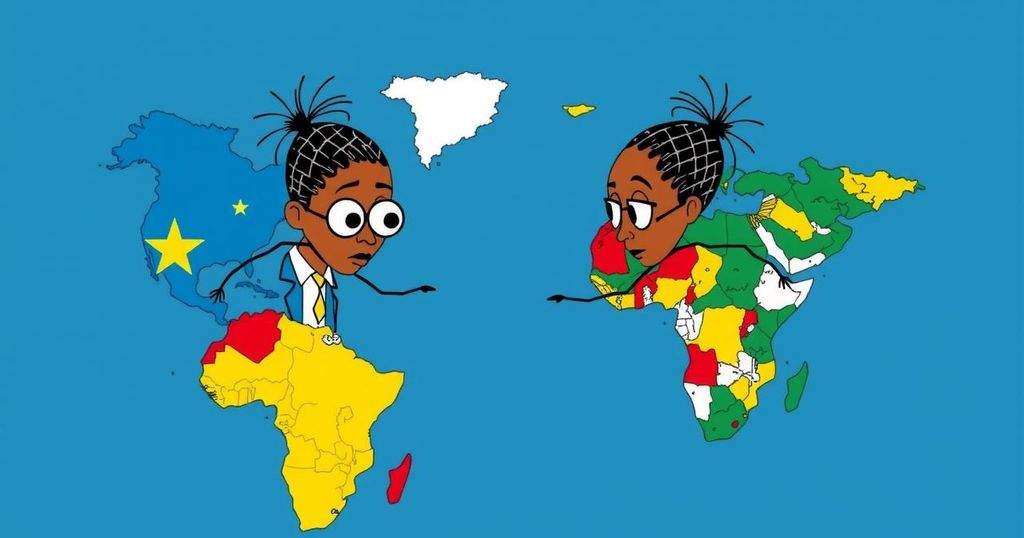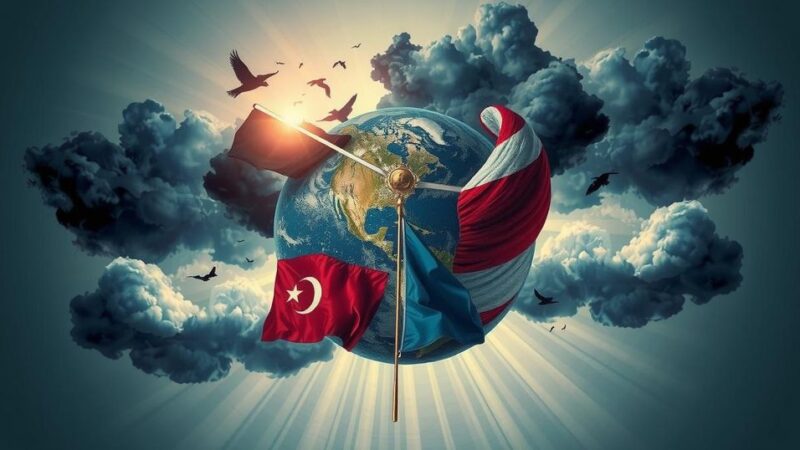At COP29, a climate financing deal promising $300 billion annually by 2035 was reached, but it was criticized by developing nations as inadequate. Key representatives labeled the agreement an “optical illusion” and “insult,” highlighting ongoing tensions between wealthy and poorer nations over climate-related financial support. Despite some viewing it as a starting point, the significant gap between the deal and proposed contributions raises concerns regarding global climate cooperation.
At the conclusion of COP29 in Azerbaijan, a climate finance deal was finalized, yet developing nations expressed deep dissatisfaction with the $300 billion annual commitment from wealthier nations by 2035, deeming it grossly inadequate. India’s delegate, Chandni Raina, described the deal as an “optical illusion” that failed to meet the urgent challenges posed by climate change. Sierra Leone’s Environment Minister Jiwoh Abdulai criticized the lack of support for the world’s poorest nations, while Nigeria’s representative called the agreement an “insult.” Many developing countries had aimed for a significantly higher financial commitment, reflecting their vulnerability to climate impacts. Although some representatives noted that the agreement represents a starting point, it falls short of the $390 billion suggested by UN-commissioned economists as a fair contribution from developed nations. UN Secretary-General Antonio Guterres expressed disappointment, stating that he had hoped for a more ambitious result, emphasizing the necessity of maintaining international cooperation to address this issue. Overall, while a deal was reached, it highlights the ongoing struggle between developing and developed nations regarding equitable climate financing.
The two-week COP29 summit brought forth intense discussions among nearly 200 nations regarding the financial commitments necessary to combat climate change, particularly focusing on the differences between developed nations, which are historically responsible for most emissions, and developing countries facing the harsh consequences. This year’s discussions culminated in a deal that outlined a pledge of $300 billion annually by 2035 from wealthy nations, a figure that has been met with significant backlash from countries most impacted by climate change, who argue that this amount is insufficient given the scale of the crisis.
The agreement reached at COP29 has sparked outrage among developing nations, which argue that the pledged financial support is inadequate given the urgent challenges they face from climate change. While the deal represents a step toward collective action, the low financial commitment highlights persistent inequities in global climate negotiations. This outcome raises questions about future cooperation and the effectiveness of such agreements if they do not meet the needs of the most affected regions.
Original Source: www.taipeitimes.com






